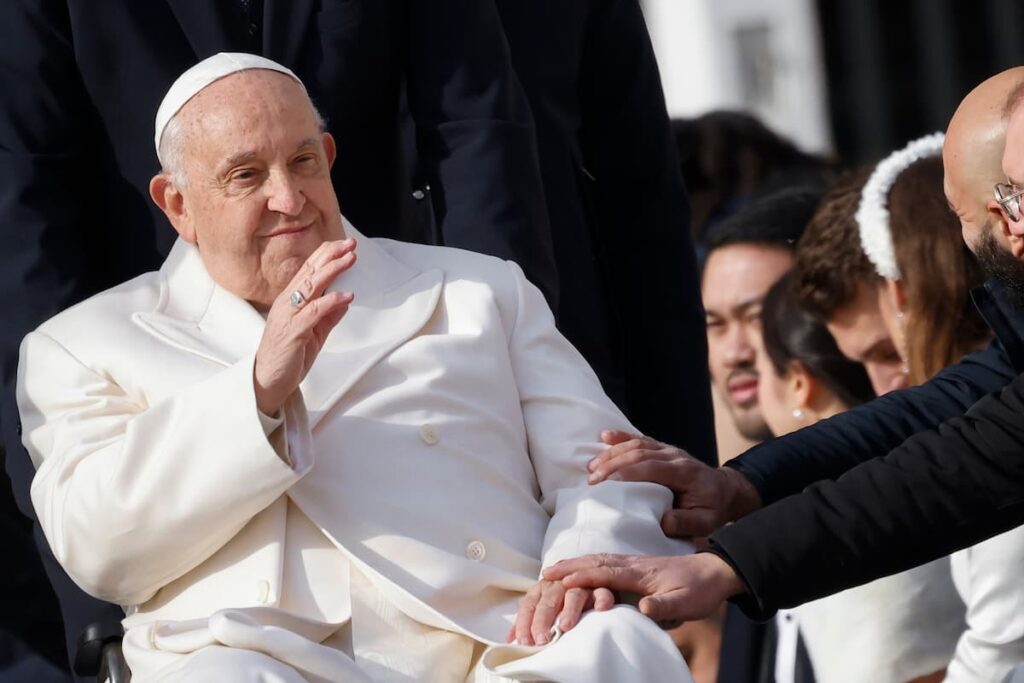The world is in mourning following the death of Pope Francis, the first Latin American leader of the Roman Catholic Church. The 88-year-old Argentinian pontiff passed away after a severe case of double pneumonia that required weeks of hospitalization. Just a day before his passing, he made his final public appearance, blessing thousands of Easter worshippers from the Popemobile in St. Peter’s Square.
As the 266th pope in history, Francis leaves behind a legacy marked by humility, reform, and a global message of inclusion and solidarity. His papacy was noted for breaking with tradition, often stepping beyond the boundaries of the Vatican to connect with people from all walks of life. His leadership touched millions — both within and beyond the Catholic faith.
Global Reactions to His Passing
The impact of Pope Francis’s death has reverberated across continents, prompting tributes from political, spiritual, and cultural leaders around the world.
In his native Argentina, the government expressed profound sorrow over the loss of a national figure who became the face of the global Church. Despite past political tensions, leaders acknowledged his dedication to interreligious dialogue and spiritual outreach to the youth.
European leaders reflected on his lasting contributions to peace and human dignity. Figures across the European Union recognized the Pope’s consistent advocacy for the less fortunate and his attempts to build a fairer world. Countries like Spain declared days of national mourning in his honor, acknowledging his reformist vision for the Church.
North America also responded with heartfelt messages. In the United States, both current and former government officials honored his memory, acknowledging his influence on religious and diplomatic matters. In Mexico, leaders emphasized his humanistic focus, highlighting his unwavering support for the poor and his commitment to peace and equality.
Leaders in South America, particularly in Brazil, remembered Pope Francis for bringing urgent issues like climate change and economic injustice into the Vatican’s agenda. They praised his courage, simplicity, and his role in connecting the Church to modern global challenges.
A Voice That Transcended Borders
Pope Francis was more than a religious figure — he was a global moral leader whose influence extended far beyond the confines of Catholicism. From Asia to Africa, leaders described him as a symbol of compassion and spiritual courage.
In India and Bangladesh, leaders emphasized his devotion to the poor and his deep sense of humility. Across the Philippines, where Catholicism has the largest following in Asia, his death sparked a national outpouring of grief. Local clergy called for collective prayer in his honor.
In Africa, Pope Francis was remembered for his consistent support for social justice, inclusion, and environmental protection. South Africa and Ethiopia echoed a common sentiment — that his loss was not just religious, but profoundly human. From Timor-Leste to Egypt, the response was unified: Pope Francis had become a symbol of service, simplicity, and hope for a better world.
His commitment to interfaith harmony also stood out. In Russia, his efforts to bridge gaps with the Orthodox Church were recognized with gratitude. In Palestine, leaders remembered him as a loyal supporter of justice and peace. Even in Iran, officials acknowledged the Pope’s spiritual influence worldwide.
A Spiritual Giant Remembered
From Europe to Oceania, Pope Francis’s impact was widely celebrated. In France, his empathy toward the vulnerable was highlighted as an example for leaders facing a world filled with war and inequality. Australia described him as a father figure to the global Catholic community, applauding his commitment to environmental stewardship and humanitarian advocacy.
In Germany and Poland, his deep sense of faith and mercy was recognized as a guiding light in times of moral confusion. Spain’s leaders praised his reformist approach and acknowledged his influence in shaping the modern Catholic Church.
Even non-Christian communities paid tribute. The Dalai Lama sent prayers in honor of a life that embodied simplicity and service. In Tibet, his life was remembered as an example of meaningful leadership grounded in humility. The United Kingdom, including its monarch and prime minister, mourned the loss of a man who stood for unity, justice, and care for the planet.
At a global level, the United Nations recognized Pope Francis as a historic voice for peace and dignity, one who consistently championed the cause of the poor and forgotten.
A Legacy That Lives On
Pope Francis’s death marks the end of an era, but his influence is far from over. His leadership style — marked by empathy, transparency, and an unwavering commitment to justice — reshaped the papacy and inspired generations.
From defending the environment to challenging inequality, from embracing interfaith dialogue to walking alongside the poor, his actions spoke louder than any sermon. The tributes from every corner of the globe serve as a testament to the kind of leader he was — not just a religious figurehead, but a man of the people.
In his absence, the world holds onto his legacy: one built on compassion, courage, and a deep love for humanity.


